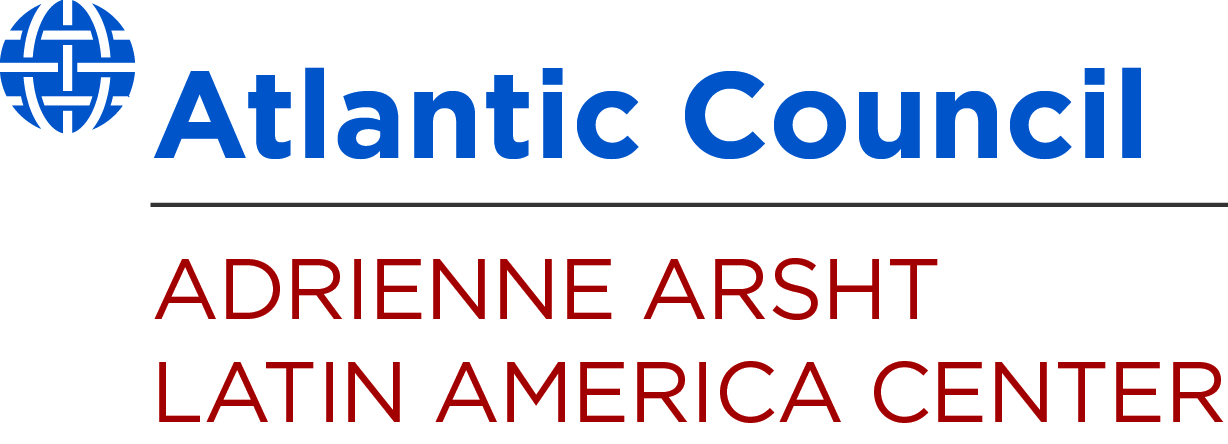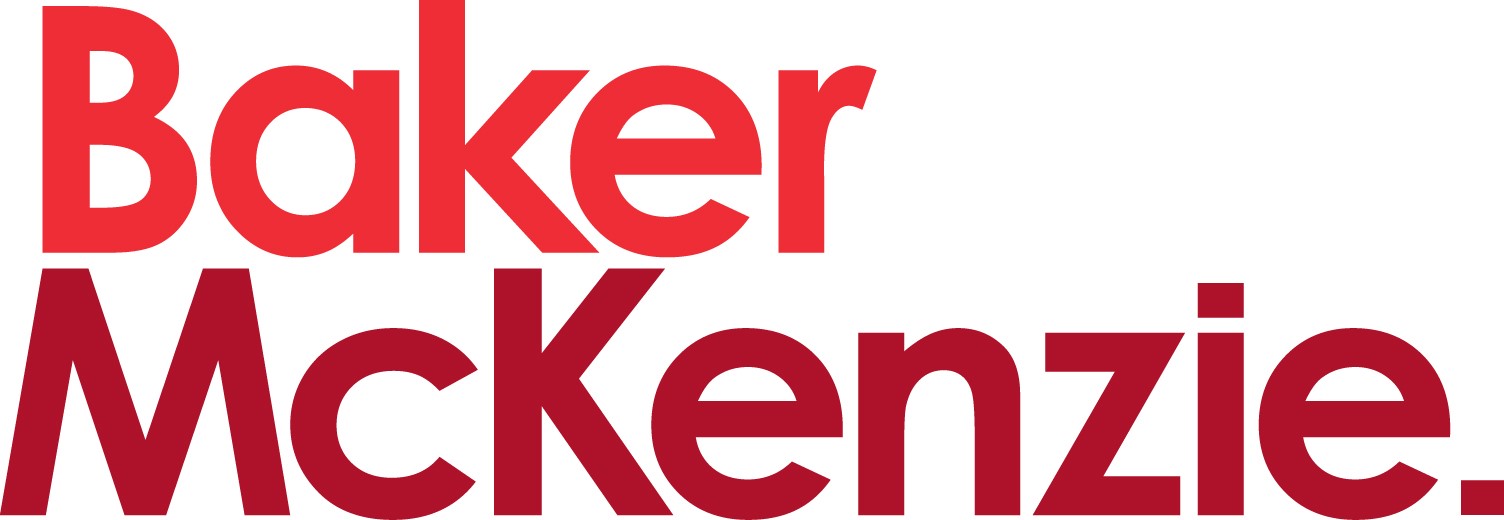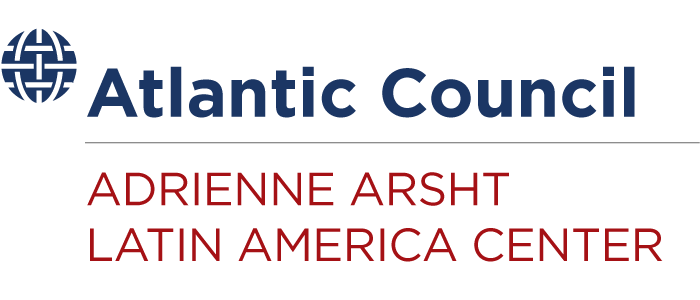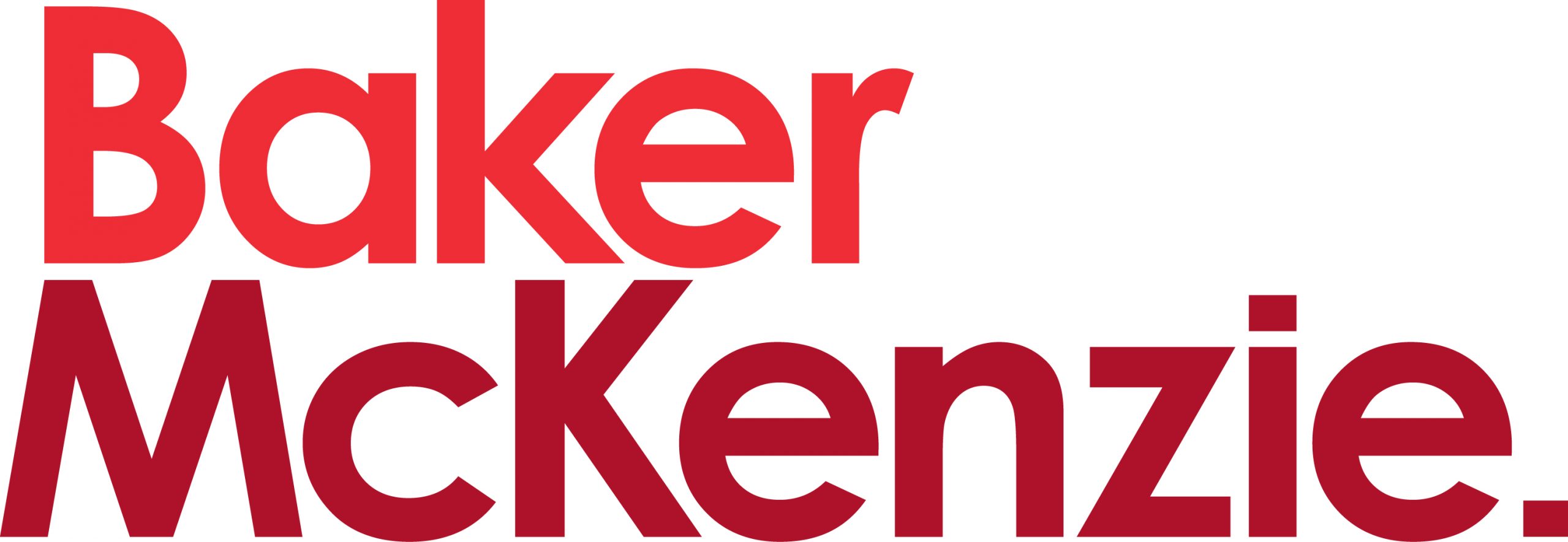Spotlight: The Biden-Harris Administration and the future of supply chains in the Americas
The month of November 2020 marked a turning point for the United States as voters cast their ballots at rates not recently seen in a US election. The historic race saw around 65 percent of the voting population in the United States participating, the highest in more than one hundred years. With three hundred and six Electoral College votes in their favor, former US Vice President Joseph R. Biden and California Senator Kamala Harris will become the next president and vice president of the United States.
The atmosphere of uncertainty that characterized the 2020 US election was consistent with the rampant uncertainty that has plagued 2020 as a whole. The global COVID-19 pandemic, which has taken the world by storm, has disrupted lives, upended economies, and destabilized supply chains.
This disruption was profoundly felt in the Western Hemisphere, where suppliers in the Americas were forced to adapt sourcing and inventory strategies as suppliers in Asia and other regions shut down operations, where companies faced shortages and interruptions, and where costs soared as necessary raw materials became harder to source. Even as grocery-store shelves quickly emptied, food and basic necessities became scarce for many, and personal protective equipment (PPE) went on back order, the world stepped up to diversify sourcing and manufacturing locations, setting the stage for the modernization and increased resilience of supply chains in the coming years.
Supply remains crucial as governments, businesses, and individuals brace for a second wave of shutdowns and prepare to bounce back post-pandemic. A key priority for the next US administration will be working alongside partners and allies in the Western Hemisphere to assure supply-chain resilience is achieved and prioritized.
President-Elect Joe Biden has pledged to build broad-based supply-chain resilience and to work collaboratively with the private sector to improve productivity and avoid unnecessary costs and bureaucracy.1“The Biden Plan to Rebuild Supply Chains and Ensure the US Does Not Face Future Shortages of Critical Equipment. Biden-Harris for America,” Biden for President, https://joebiden.com/supplychains/. Snap polls of businesses show they are counting on the next US administration to deliver on this promise.2Emma Cosgrove, “Biden and Trump Envision Similar Supply Chains, but Difference Paths to Get There,” Supply Chain Dive, October 16, 2020, https://www.supplychaindive.com/news/biden-trump-supply-chains-reshoring-inventory-trade-tariffs/587152/. As the inauguration of the forty-sixth president of the United States approaches, the question becomes: how can cooperation across the Americas, under a Biden administration, impact the future of supply chains in the Americas?
In this Spotlight, seventeen authors from various countries, regions, and industries, representing the public and private sectors, tackle various opportunities in five key questions.
Question one
Given what is known about the incoming Biden-Harris administration, what might be the US role in advancing the development of greater commercial integration in the Western Hemisphere?
Manuel Padrón-Castillo
Partner, International Commercial and Trade Group
Baker McKenzie (Mexico City)
On the factors that will shape a US approach to integration
The United States’ role in advancing the development of greater commercial integration in the Americas will be both strategic and central to its success. But, while it may be intuitive that the United States should move toward greater integration for greater prosperity, the pace of that continued integration will be subject to a variety of internal and external factors over the coming years.
COVID-19 will be a key factor in US trade policy for the Biden administration. The coronavirus has devastated the US economy. Quicker adaptation to new conditions going into 2021 will be essential to bringing back economic growth, and the pandemic’s effects are not exclusive to the US economy; many Latin American countries have seen similar, or worse, consequences. Recovery of the US economy would bring an expectation south of the Rio Grande that a renewed partnership with the United States may alleviate the burdens on the broader regional economy.

Recovery of the US economy would bring an expectation south of the Rio Grande that a renewed partnership with the United States may alleviate the burdens on the broader regional economy.
The pandemic will not be the only factor to influence the future of economic and commercial policy in the United States. Even prior to the emergence of COVID-19, the trends in globalization that were prominent over the second part of the past century and the beginning of this new one encountered resistance from protectionism and nationalistic views. It was under these conditions that the US-Mexico-Canada Agreement (USMCA) was negotiated and enacted. For the future of commercial integration, the USMCA shows multilateralism still has a place in the commercial agenda. This is a positive sign for broader, deeper, and further integration.
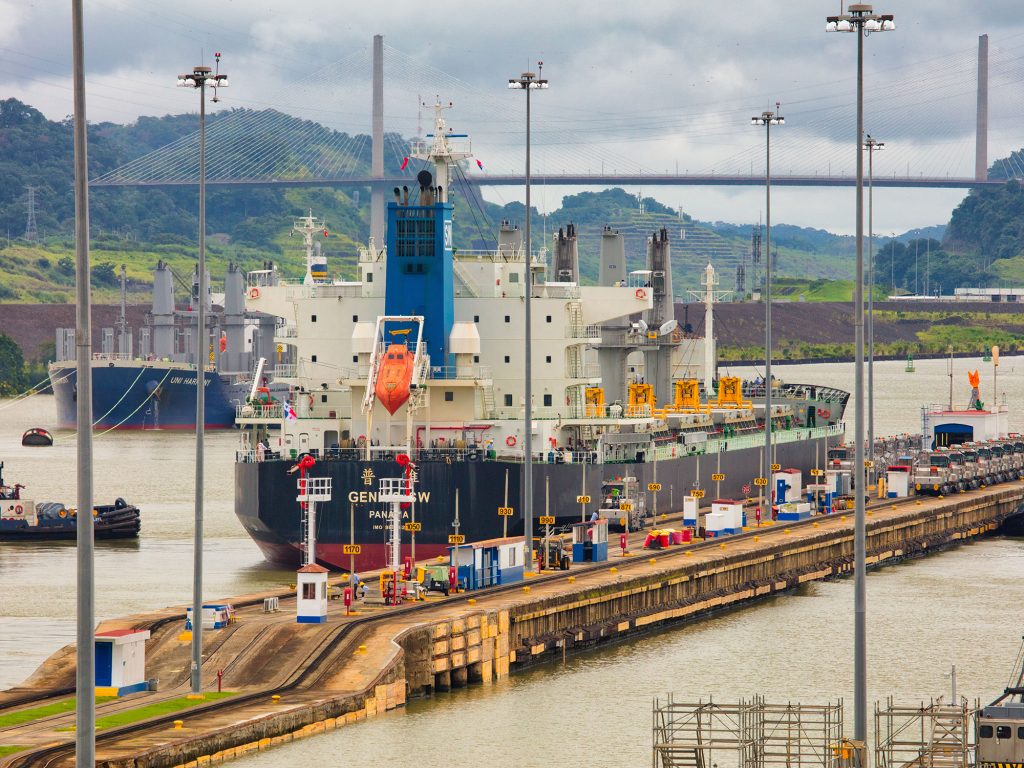
A good indicator of a successful approach to further integration under USMCA is the automotive industry. The increased degree of regional value content (RVC) for vehicles and some auto parts to enjoy free trade, demands that producers provide a comprehensive review of their respective supply chains. In six years, when the window to review the treaty comes up, it will have to be determined if the higher RVC resulted in growth in trade and investment, or if consumers ended up carrying the burden of more expensive vehicles.
Finally, the steady and significant increase of Chinese investment in the hemisphere, particularly in Latin America, suggests that US commercial interests will find stronger competition. Overlooking or minimizing this reality may be detrimental for US economic presence in the region.
Maurice Bellan
Managing Partner, Washington, DC;
Member, Global Dispute Resolution and North America Litigation and Government Enforcement Steering Committees
Baker McKenzie (Washington, DC)
On US leadership in support of regional stabilization and recovery
As the next president of the United States prepares to enter office, I am comforted by the following words: We the people of the United States in order to form a more perfect union, establish justice, insure domestic tranquility, provide for the common defense, promote the general welfare, and secure the blessings of liberty to ourselves and our posterity, do ordain and establish the Constitution of the United States of America.
The first priority of the president of the United States is to uphold and to honor the US Constitution. In a globally-connected world, the intersectionality of communities and economies test the ability of the US president to provide for the common defense and promote the general welfare of the citizens of the United States. To achieve the economic security that is inherently implied in these venerable clauses of the US Constitution, the president must be mindful that the success of US strategy is inextricably linked to that of its regional neighbors in the Caribbean, Canada, and Central and South America.
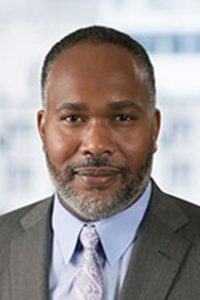
To achieve the economic security that is inherently implied in these venerable clauses of the US Constitution, the president must be mindful that the success of US strategy is inextricably linked to that of its regional neighbors in the Caribbean, Canada, and Central and South America.
President Donald Trump’s “America First” foreign policy approach has had the effect—whether intended or not—of placing the United States in a precarious security position with its neighbors in the Western Hemisphere. The Trump administration’s border-enforcement strategy—which appears to have been the depth of its foreign policy agenda—has not proven to be an effective means of engagement, and has not resulted in enhanced security for the United States.
Bilateral discussion and economic development that addresses the root causes of flight from one nation to another is a strategy one can expect a Biden administration to employ. This approach will not only begin to mend a damaged US leadership profile, but will attempt to create a stronger economic profile for the Western Hemisphere—not just for the United States.
For the next US president, helping to stabilize the region must be a top priority. Over the last four years, the lack of US presence and leadership in the region has resulted in increased influence by China and Russia in several Central and South American and Caribbean countries. A Biden administration would prioritize mending the polarization that has occurred, and pull southern allies together to forge a comprehensive and mutually beneficial economic-integration plan. Biden’s experience as the point person for Latin America during the Barack Obama administration will prove helpful for assembling allies and friends and beginning to repair alliances.
Ildefonso Guajardo
Former Secretary of Economy, Mexico
Member, Adrienne Arsht Latin America Center Advisory Council
Atlantic Council
And
Juan Carlos Baker
CEO & Founding Partner, Ansley Consultores
Former Undersecretary of Foreign Trade, Mexico
On the framework of USMCA as a guiding principle for further integration
In today’s context of global economic downturn, the emerging economies in Latin America and the Caribbean need a reliable partner in order to turn the corner and minimize the risk of a “lost decade.” The Biden administration’s “Build Back Better” approach focuses on bringing manufacturing and production back to the Americas, including through nearshoring and reshoring, and could offer unprecedented opportunities for the region.
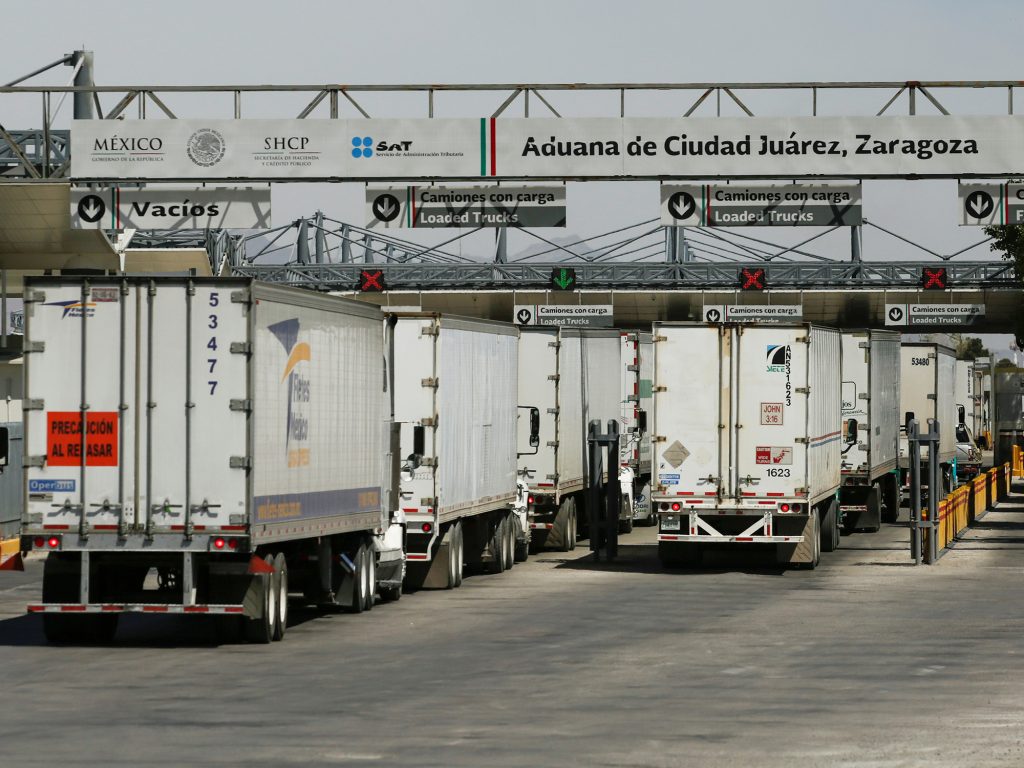
However, a first step for the next US administration will be to kickstart the United States’ own economic recovery, and to do so in partnership with the private sector. This way, the country can counter China’s commercial influence and viably become the reliable partner the region needs to further commercial integration in the hemisphere.
The USMCA offers an ideal framework. Although the pandemic has complicated the implementation and enforcement of the USMCA in Mexico, the agreement’s updated provisions on labor, environment, digital trade, and small and medium enterprises—to name a few—bolster North America’s competitive edge, with unprecedented potential for forward and backward linkages.
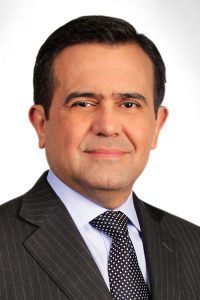

Although the pandemic has complicated the implementation and enforcement of the USMCA in Mexico, the agreement’s updated provisions on labor, environment, digital trade, and small and medium enterprises—to name a few—bolster North America’s competitive edge, with unprecedented potential for forward and backward linkages.
Moreover, in addition to Mexico, there are other countries in the region that could also potentially host these new global value chains coming from Asia. Colombia and Peru, which also have free-trade agreements with the United States—albeit not as ambitious and modern as the USMCA, nor as sophisticated in their manufacturing and exporting bases as Mexico—could also be attractive markets for companies seeking to have access to the US market and be geographically closer. Having said that, it is important to assess other elements of the business environment: the rule of law, protection of intellectual property, and tax and fiscal issues.
Lisa Schroeter
Global Director of Trade and Investment Policy
Dow
On the role of the private sector in driving integration
At a time when the world is struggling to recover from the devastating impacts of COVID-19, to restore economic growth, and to create high-quality jobs, there has never been a better moment for the United States to energize Western Hemispheric integration, building on the innovative contributions of the US private sector.
Ultimately, companies are already drivers of integration. They invest in each other’s countries, source customers over borders, and, more importantly, engage strategically to share innovation and to partner on supporting customers to deliver new, more sustainable products to market.
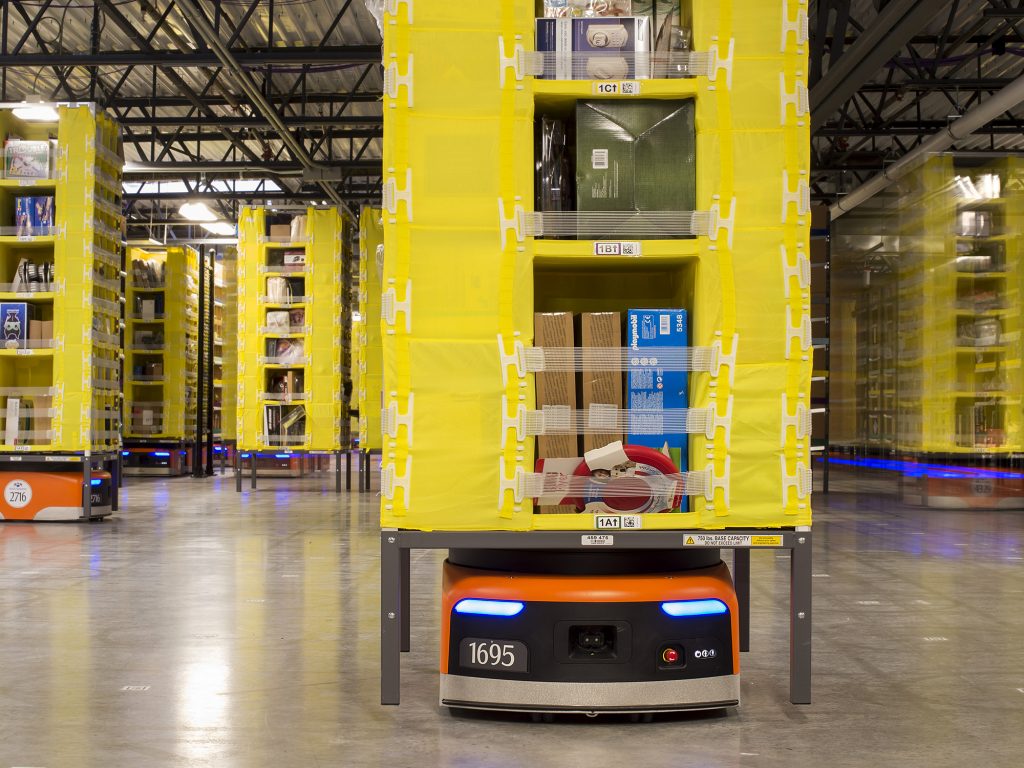
In 2021, the public and private sectors can align to support an integrated policy agenda that enables growth, including through: regulatory cooperation, as the United States has demonstrated tangible impacts of regulatory reform, streamlining and making procedures more efficient based on sound science and risk assessment principles so that companies large and small can operate efficiently and with certainty; trade facilitation, as COVID demonstrates the essential value of timely products to market, and supply chains need efficient and clear procedures, leveraging technology so that materials get to markets, especially critical inputs that support domestic manufacturing and highly skilled workers; and sustainability, as one of the greatest areas of opportunity is to share the common goal of better environmental performance in order to support better, more resource-efficient manufacturing, combat climate change, and introduce fit-to-purpose products on the market. Sustainability means both better environmental and economic performance. A common effort to reduce barriers—tariff, non-tariff, regulatory—will enable access and investment in these technologies that can contribute to a more sustainable planet, and can better all communities.
In 2021, the public and private sectors can align to support an integrated policy agenda that enables growth.

Integration across the Western Hemisphere already happens across supply chains, between customers and people to people. Twenty twenty-one offers the opportunity to build on these strong alliances, with a focused agenda and a common effort to share best practices and build capacity for a more integrated, and better performing, Western Hemisphere market.
Question two
In what ways might the next US administration advance policies that allow for supply chains in the Western Hemisphere to withstand major disruptions/shocks similar to COVID-19?
Jason Marczak
Director, Adrienne Arsht Latin America Center
Atlantic Council
On harmonization of supply chains in the Western Hemisphere
With more free-trade partners than anywhere else in the world, incredible human capital, and geographic proximity, Latin America offers a promising platform to expand US commercial ties in order to generate jobs in the United States and in the region. This can be achieved while helping the region to rebuild in a way that creates sustainable economic development and sets a trajectory for leapfrogging longstanding economic-development challenges.
As global supply chains are reconfigured, the Western Hemisphere should benefit from nearshoring trends, where businesses will find similar time zones, ties to the sixty-million-plus US Latinos, and proximity to domestic and regional markets. Mexico, Colombia, and Central America, in particular, are in a unique position to potentially take advantage of this opportunity—all are free-trade partners with supply chains that, to varying degrees, are already integrated with those of the United States.
The incoming Biden-Harris administration has an opportunity to translate “Build Back Better” into a hemispheric growth plan that helps the region rebuild from COVID-19, while, at home, creating jobs and new economic opportunities. While many tools can be deployed to accelerate regional recovery, the creation of stronger and more resilient supply chains should be near the top of the list.
The incoming Biden-Harris administration has an opportunity to translate “Build Back Better” into a hemispheric growth plan that helps the region rebuild from COVID-19, while, at home, creating jobs and new economic opportunities.

Three ways exist to make supply chains stronger and more resilient. First, existing trade agreements should be analyzed to ensure that implementation is, in fact, taking advantage of the free flow of commerce intended in the original agreement. If technical barriers are found to be impeding commerce, they should be rapidly addressed. Second, the spaghetti web of Western Hemisphere agreements can be better utilized, with more efficient harmonization that facilitates greater intra-regional and US trade.

Third, and crucially, the United States should engage in consultations and create formal institutional mechanisms to ensure a common agreement among essential industries in the case of another major disruption. Earlier this spring, a US-Mexico dispute on essential industries reverberated across supply chains and industries. Here, an important starting point for the Biden-Harris administration is to update the 2012 North American Plan for Animal and Pandemic Influenza (NAPAPI) to include a new chapter focused on the protection of supply chains, especially in light of the new United States-Mexico-Canada Agreement (USMCA). An updated NAPAPI should include even clearer procedures and concrete coordination steps to be taken in the face of future health-generated shocks.
Finally, stronger and more efficient supply chains cannot be built without greater investment in both physical and digital infrastructure. Through a Development Finance Corporation with an expanded remit in the type of bankable projects, the United States can better support private-sector efforts to upgrade critical infrastructure—roads, rail, deep-water ports—but also expand broadband and Internet connectivity across the region. In the next administration, the United States will have an historic opportunity to significantly deepen and strengthen supply chains in order to position the United States as the partner of choice for the region’s post-COVID recovery.
Christina Conlin
Partner, International Commercial Practice Group
Baker McKenzie (Chicago)
On tax, trade, and labor policy certainty to strengthen supply-chain resilience
Businesses need certainty. This year has provided anything but that, with challenges and instability due to COVID-19, extreme climate events, and civil protests and disruption in the United States. Supply-chain stability and resilience can be enhanced by the US administration providing quick, clear guidance on its intended tax, labor, and trade policies to support diversification of the supply chain.
The disruption from COVID-19 has placed a new emphasis on companies’ strategies for reshoring, nearshoring, or multi-jurisdictional diversification of suppliers. COVID-19 laid bare the need to diversify all tiers of suppliers to more than one location or region. Tax, trade, and labor policy certainty is needed across industries, though there will be a necessary focus on healthcare and PPE in the immediate future.

COVID-19 laid bare the need to diversify all tiers of suppliers to more than one location or region. Tax, trade, and labor policy certainty is needed across industries, though there will be a necessary focus on healthcare and PPE in the immediate future.
While company leaders may not appreciate, nor agree with, all or some of the administration’s policies, they will nonetheless appreciate knowing toward which direction they need to pivot, and how these policies will impact their companies’ supply-chain investment and strategy. Regulatory alignment with key trading partners would also bolster stability by reducing legal and operational challenges across markets. With an early indication of intended policies, businesses can promptly evaluate their investments, commercial contracts, and overall supply chain strategy.
Conversely, the administration’s failure to provide concrete direction quickly may cause companies to withhold investments or forgo needed structural changes, increasing the risks to stability, employment, and economic growth.
COVID-19 exposed supply-chain weaknesses, but supply-chain diversification is necessary to prevent future shocks beyond COVID-19. Companies need to make decisions faster than ever, amid more uncertainty than ever. Clear policy direction from the incoming Biden administration would remove one barrier to resilience.
Kerry Contini
Partner, International Commercial Practice Group
Baker McKenzie (Washington, DC)
On export/import measures to avoid major disruptions
To better withstand major shocks, the incoming Biden administration should consider using export/import measures at the border as a way to keep supply chains close to home and avoid major disruptions. In particular, the Biden-Harris administration might be tempted to repurpose the “carrot” and “stick” import and export measures that were used to address the infamous shortages in PPE during the pandemic. Those measures were intended to encourage imports of the needed products (the “carrot”) while making exports more difficult (the “stick”). On the import side, US measures primarily focused on relaxing product regulatory requirements to make it easier to get the needed products into the US market. On the export side, during the early days of the pandemic, the United States dusted off long-neglected provisions of the Defense Production Act to try to minimize exports of products needed domestically to satisfy the massively increased demand.

To better withstand major shocks, the incoming Biden administration should consider using export/import measures at the border as a way to keep supply chains close to home and avoid major disruptions. In particular, the Biden-Harris administration might be tempted to repurpose the “carrot” and “stick” import and export measures that were used to address the infamous shortages in PPE during the pandemic.
Restricting exports is unlikely to become the administration’s go-to tool to address supply-chain disruptions, as this was a controversial approach with questionable results. It is more likely that it would consider addressing mismatches in supply and demand through measures affecting imports (e.g., relaxing product regulatory requirements, expediting customs clearance and inspection procedures, or temporarily suspending import or other duties/fees). Ultimately, the nature and duration of the disruption and the type of supply chain will help to determine the appropriate tool.
In the longer term, it’s worth keeping an eye on the impact of the administration’s continued implementation of export controls on emerging and foundational technologies, which are mandated by the Export Control Reform Act of 2018. The stated objective of these export controls is to advance US national security interests, not supply-chain resilience. However, additional restrictions on the export of US technologies to China and other countries could, somewhat paradoxically, contribute to nearshoring as companies adjust their supply chains to avoid countries subject to these export controls.
Question three
What actions can North American and Latin American countries take to utilize new technologies in order to facilitate the modernization and innovation of supply chains as global economies are poised to fundamentally shift post-COVID-19?
Shunko Rojas
Co-Founder and Partner, Quipu Advisors
Former Undersecretary for International Trade
Argentina
On the importance of digital connectivity, regulatory frameworks, productive processes, and labor-force training for harnessing technology
To maximize the benefits of new technologies in the strengthening and upgrading of regional supply chains in a post-COVID-19 context, the region needs to focus on four key areas: digital connectivity infrastructure, regulatory frameworks, productive processes, and labor force.
Digital connectivity infrastructure: Dynamic, dense, and efficient value chains require a modern and reliable digital-connectivity infrastructure to enable greater capacity, speed, and affordability of digital data processing and transmission. Countries need to invest in digital infrastructure while ensuring quality services and universal access at affordable costs.
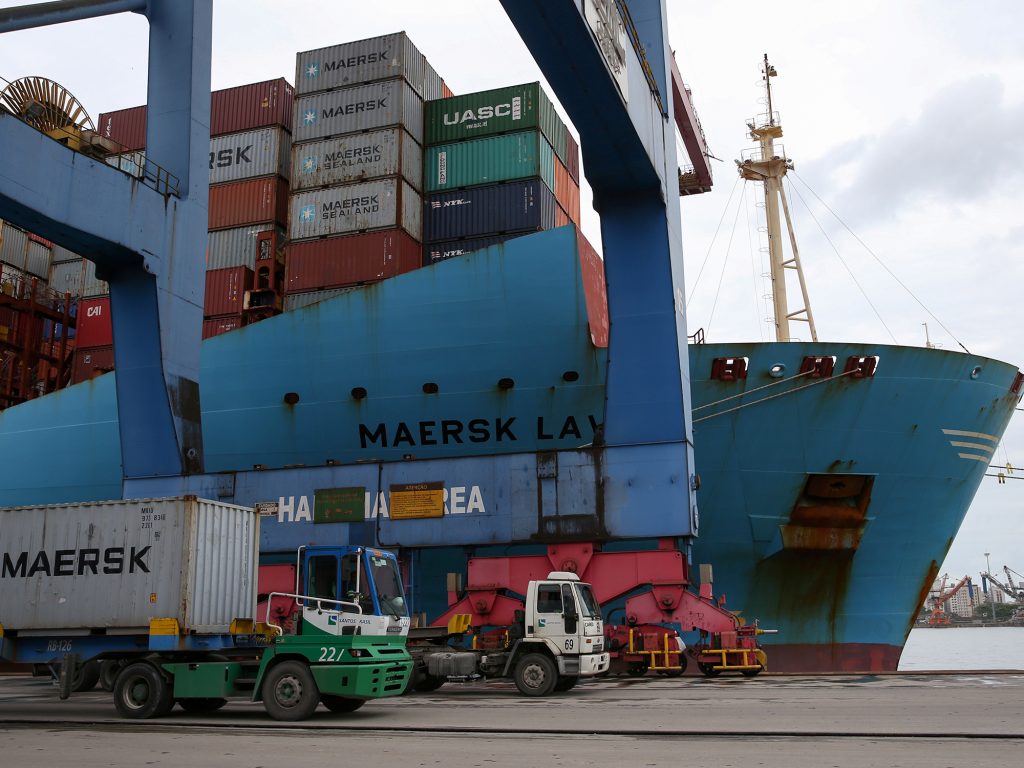
Regulatory frameworks: Countries in the Western Hemisphere need to adopt robust, flexible, and conducive regulatory frameworks to catalyze the benefits of new technologies. In particular, countries have to adopt sound regulations on cybersecurity, data privacy, interoperability, and competition. In addition, the region needs to work on regulatory cooperation to set up common standards, and to ensure that data and technology innovations flow freely and safely across the Americas.
Productive processes: Governments and the private sector need to work closely together to better incorporate digital technologies into processes and services to increase productivity, keep up with global technology advances, and adapt effectively to disruptive innovations. Governments should concentrate their efforts on supporting small and mid-size enterprises (SMEs), women, and other disadvantaged groups and their integration into supply chains.
Labor force: Governments must also invest in human capital, and adopt vigorous policies aimed at preparing the workforce to fully grasp the benefits of digital technologies and supporting workers in transition. Digital-skills development through training assistance and education programs can play a key role in ensuring a more even distribution of gains from trade and technology advances, which would ultimately result in more stability and prosperity in the region.
To maximize the benefits of new technologies in the strengthening and upgrading of regional supply chains in a post-COVID-19 context, the region needs to focus on four key areas: digital connectivity infrastructure, regulatory frameworks, productive processes, and labor force.

The 2021 Summit of the Americas will provide a unique opportunity for political leaders to work on a common agenda to address these issues and set the grounds for building a prosperous post-COVID-19 Western Hemisphere based on a digitally driven and more inclusive integration.
Carlos Alberto Vela-Treviño
Partner, Information Technology and Communications Practice Group (Mexico City)
Baker McKenzie (Mexico City)
On the importance of digital transformation as a priority for companies and governments
Digital transformation powered by companies, together with innovative nearshoring regimes facilitated by Latin American governments, should be the key enablers for Latin America becoming an innovative and flexible manufacturing powerhouse, one that allows North American companies to operate in an agile, secure, and nimble environment.
Modern treaties like the USMCA and the Pacific Alliance Treaty might be key enablers for bringing relief to US and Latin American global supply chains hammered by COVID-19 and US-China trade wars. Countries with free-trade agreements in place, free movement of information and personal data, strong privacy and cybersecurity regimes, flexible labor and immigration regimes, and solid anticorruption and intellectual property enforcement laws should score high as nearshoring options. However, to truly compete with the offering of East Asia (which combines skilled workforces with low costs), Latin American governments should be willing to invest in automation technology, artificial intelligence, and robotics, as a means to improve industrial productivity. Nearshoring arrangements of the future should include more than traditional tax benefits; they should also include stimulus for investment in digital transformation, research, and development.
Nearshoring arrangements of the future should include more than traditional tax benefits; they should also include stimulus for investment in digital transformation, research, and development.

The creation of sophisticated workforces (rather than the creation of jobs) should become the priority for companies and governments. Digital transformation does not rely on regulatory change or government stimulus in order to produce innovative results. Rather, it is fundamentally about process transformation, about changing how the different stakeholders in a productive chain behave in order to achieve a specific result. Only a skilled workforce would be able to identify opportunities on data, and to test and deploy technology that may enhance productivity, or even fundamentally change the role of a company in the production chain; companies that will succeed are those that cease to see digital as an arm of the company and instead see, and experiment, with digital as the heart of the company.
Joyce Smith
Partner
Lead, Global IP Transactions and Tax Practice
Member, North America International Commercial Practice Group Steering Committee
Baker McKenzie (San Francisco)
On trends from key industries
Countries in the region can consider implementing policies and laws that make it easier for businesses to leverage digital technologies and restructure their supply chains to meet fast-changing realities. Some of the trends that have been seen from advising companies looking to persist through the pandemic and thrive post-pandemic include: significant disruptions to workforces, production capabilities, and logistics that have resulted in the need to resize and find alternative suppliers; a huge uptick in demand for online, digital, and telecommunications services; and a desire to diversify and build flexibility into supply chains given unpredictable developments in political, regulatory, and trade regimes.
For example, in the industrial, manufacturing, and transportation industries, there is a growing emphasis on trying to shorten the supply chain and leveraging digital technologies to create digital factories that make it easier to track inventory.

To help businesses modernize and innovate their supply chains in this environment, countries in the region can seek to bolster their investments in local infrastructure (e.g., expand fifth-generation (5G) capabilities), cooperate with other countries to standardize regulatory requirements (thus alleviating some of the compliance costs associated with engaging in cross-border activities), consider reducing trade barriers where aligned with other national interests, and increase reliance on properly vetted datasets and scientific principles to drive policy decisions.
In the consumer goods and retail space, companies have been forced to adopt more flexible business models, including increased reliance on digital platforms and concentrating efforts on key revenue centers.
And, in the technology, media, and telecommunications space, there has been increased demand for services and consolidation of providers—which, in turn, has fostered innovation in sub-industries such as cybersecurity, identity verification, digital marketing, and e-commerce.
To help businesses modernize and innovate their supply chains in this environment, countries in the region can seek to bolster their investments in local infrastructure (e.g., expand fifth-generation (5G) capabilities), cooperate with other countries to standardize regulatory requirements (thus alleviating some of the compliance costs associated with engaging in cross-border activities), consider reducing trade barriers where aligned with other national interests, and increase reliance on properly vetted datasets and scientific principles to drive policy decisions.
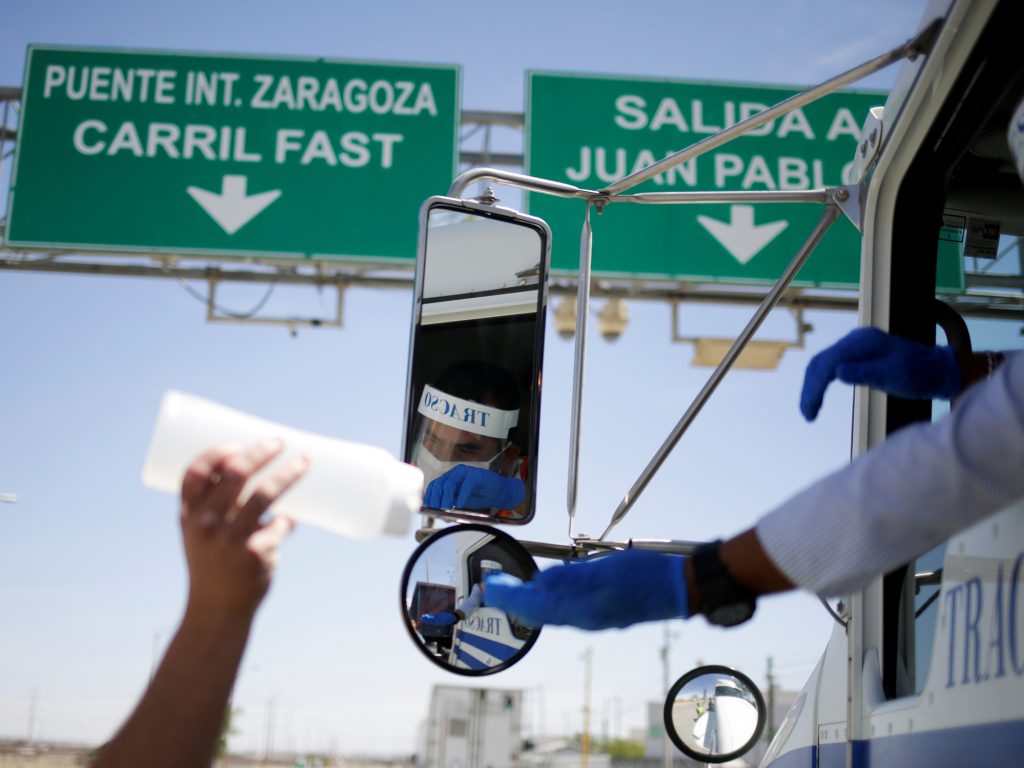
Question four
How can supply chains be used to strengthen efforts to meet environmental, social, and governance (ESG) goals in the Americas—the main pillars that measure sustainability and societal impact of the private sector—and how might the new administration’s policies impact these goals?
Reagan Demas
Partner, Litigation & Government Enforcement Practice Group
Baker McKenzie (Washington, DC)
On the social impact of corporate supply chains
Corporations have great power and ability to influence environmental, social, and governance (ESG) standards around the world. The expansion of corporate supply chains into developing countries increases the impact—both good and bad—of corporate supply chains on ESG standards globally.
The social impact of corporate supply chains (e.g., forced or child labor, human trafficking, worker safety) is under particular scrutiny today. The significant and lasting reputational damage done by allegations of social impropriety and related legal violations within the supply chain is clear and increasing. Yet, corporate reputations are not the only thing at risk—more recently, legal risk has grown significantly with the rise of transparency and reporting obligations, and a move away from previously voluntary standards. These legal risks include statutes imposing responsible sourcing obligations (e.g., 19 U.S.C. § 1307, U.S. Trafficking Victim Protections Act); shareholder litigation based on mandatory corporate public disclosures related to responsible sourcing; litigation by suppliers’ workers based on employment, contract, or tort laws; and consumer litigation based on public statements or commitments related to responsible sourcing. Stakeholders’ expectations (including customers, investors, and civil society) of global companies to address ESG issues in supply chains has never been greater, with legal obligations holding companies responsible for the bad acts of supply-chain partners following suit.

Corporations have great power and ability to influence environmental, social, and governance (ESG) standards around the world. The expansion of corporate supply chains into developing countries increases the impact—both good and bad—of corporate supply chains on ESG standards globally.
Many ESG issues in supply chains—in particular, social matters like human trafficking—are bipartisan issues in the US Congress, and the growing volume of corporate regulations touching on those issues is indicative of this bipartisan support. The clear trajectory for future congresses and administrations is toward increased regulation over supply-chain ESG matters and the continued expansion of legal obligations on corporations. As a result, corporations are likely to continue focusing on auditing and managing supply-chain partners to ensure ESG matters are appropriately addressed, and the risk of violations is mitigated.
Jennifer Trock
Partner
Chair, North America International Commercial Practice Group and Global Aviation Group
Baker McKenzie (Washington, DC)
On how sustainability can foster recovery and competitive advantages
Supply chains are increasingly complex, creating both challenges and opportunities to integrate ESG goals. As global “shock” events—whether in the form of global trade wars, natural disasters, or pandemics—become more common, companies must look for long-term solutions to future-proof supply chains with more resilient and sustainable approaches.
For example, one of the hardest-hit sectors has been the aviation, aerospace, and defense sector, where supply chains span from original equipment manufacturers to maintenance/overhaul to the end customer (e.g., airlines/defense sectors), and beyond. As the industry looks to reimagine its supply chains, it is doing so with an increased focus on ESG. Indeed, increased supply-chain efficiency and resilience often demand more sustainable approaches. As just one example in this hard-hit sector, aircraft-parts manufacturers are increasingly exploring three-dimensional (3D) parts and the use of new, more sustainable composites as one way to reduce supply-chain uncertainties. In addition, digitization will be critical for companies to, among other things, use the Internet of Things (IoT) to better manage and source inventory, demonstrate compliance, and report on their ESG obligations to relevant stakeholders.
ESG goals are integral to sustainable supply-chain approaches, but, more than that, sustainability can foster recovery and competitive advantages. Supply chains are a powerful tool in strengthening companies’ efforts to meet their ESG goals in the Americas.

While the Trump administration has overseen the entry into force of USMCA, which has entire chapters devoted to environmental and labor protections in the parties, it has simultaneously rolled back global and domestic commitments on climate-change initiatives.3United States-Mexico-Canada Agreement Implementation Act, P.L. 116-113 (2020), Title VII–VIII; John Schwartz, “Major Climate Change Rules the Trump Administration Is Reversing,” New York Times, April 29, 2019, https://www.nytimes.com/2019/08/29/climate/climate-rule-trump-reversing.html. Nevertheless, companies and NGOs are increasingly stepping up their ESG commitments—not only as the right thing to do, but also in response to investor expectations. The Biden administration is expected to seek to support the ESG direction of travel further by enforcing the environmental and labor chapters of USMCA, as well as supporting increased climate-change and sustainability initiatives domestically and globally.
ESG goals are integral to sustainable supply-chain approaches, but, more than that, sustainability can foster recovery and competitive advantages. Supply chains are a powerful tool in strengthening companies’ efforts to meet their ESG goals in the Americas.
Landon Loomis
Vice President, Global Policy
Managing Director
Boeing Brazil
On lessons learned from the aerospace and aviation industry
Boeing has longstanding supply-chain relationships across Latin America that support the firm’s global commercial, defense, and service business. These ties are a testament to the region’s growing technological capabilities, and demonstrate the importance of focused investments in research and development, infrastructure, and education. Yet the nature of supply chains is evolving, and has expanded beyond the traditional metrics of quality, capability, and value, increasingly encompassing ESG standards as well.
On environmental, social and governance issues, supply-chain relationships can help drive meaningful change in at least two ways: first, by using ESG criteria to evaluate and select potential suppliers, and second, by including ESG within the contracted work itself. True collaboration on ESG goals would also empower suppliers to speak up and identify problems they see within the contracting company – further enhancing accountability.
On environmental, social and governance issues, supply-chain relationships can help drive meaningful change in at least two ways: first, by using ESG criteria to evaluate and select potential suppliers, and second, by including ESG within the contracted work itself.

Boeing is hard at work on these issues with a stakeholder-focused approach. The company appointed a chief sustainability officer to lead its ESG agenda company-wide, made significant commitments to diversity and inclusion programs, and are investing heavily in breakthrough environmental technologies. Boeing’s supply chain and government partners across Latin America will magnify the impact of this effort, and help the company continue to meet consumer expectations to source responsibly, foster economic inclusion, and drive environmental sustainability.
Question five
How can lessons from other regions in deepening regional supply-chain integration be applied to the Americas, especially with an eye toward leapfrogging economic development in the region?
Omar Vargas
Global Head of Government Affairs
3M
On government best practices for addressing supply-demand imbalances
In a world of just-in-time production and consumption, little supply-chain elasticity exists when there are dramatic demand spikes. With COVID-19, demand spikes ranged from twenty times to forty times pre-COVID-19 averages. Total global industrial capacity was not enough to respond to the sharp supply-demand imbalance, which was further exacerbated by rigid regulatory and trade practices. There are several key global government best practices for developing a sustainable national stockpile for future emergencies. Governments that were able to enact the following did best in their national responses. These lessons are equally applicable in the Americas.

Supply-chain localization or regionalization efforts can best be supported by policies that provide tax and regulatory certainty that will support the economics of supply-chain systems that may fall idle between demand spikes.
- Governments are resilient, and can respond to sudden demand spikes by having immediate access to a national stockpile of needed supplies.
- Governments have “emergency-supplies stockpile” specified in their laws as a fully funded, non-negotiable national requirement.
- Governments must have the budgetary flexibility to procure what they need when they need it.
- Governments have established “emergency-use authorizations” as part of their national public health laws to enable rapid regulatory access to needed supplies beyond their borders. Governments must have globally harmonized standards, so they have access to global supply chains. The more non-standard the regulation, the more difficult the task of procurement becomes for a country.
- Governments must have good legal and customs systems to fight product fraud and counterfeits.
- Governments allow for flow of goods through their borders. Countries that erected export restrictions scored a short-term win, but left themselves as islands with less access to supplies because supply chains simply adjusted and flowed around them.
- Governments enter public-private partnerships with critical best-in-class suppliers. Supply-chain localization or regionalization efforts can best be supported by policies that provide tax and regulatory certainty that will support the economics of supply-chain systems that may fall idle between demand spikes.
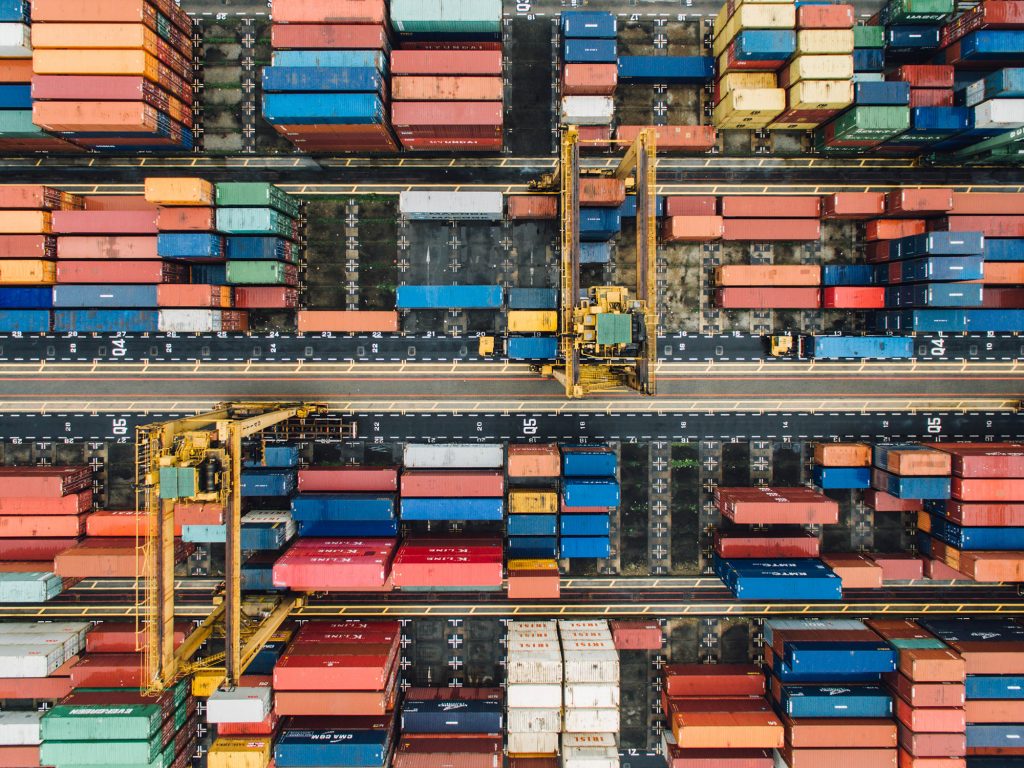
Alison J. Stafford Powell
Partner, International Commercial Practice Group
Baker McKenzie (Palo Alto)
On lessons learned from Europe, the Middle East, and Africa (EMEA)
Deepening regional supply-chain integration requires a strategic vision built around an enabling environment, strong alliances with other gateway countries, and collaborative investments in technology.
Dubai’s success as a gateway to the Middle East, Africa, and South Asia exemplifies this. The early establishment of the Dubai International Financial Center (DIFC) attracted trade-finance banks and related talent to facilitate trade and investment flows.4“About Us,” Dubai International Financial Centre, https://www.difc.ae/about/. Multiple free-trade zones, including Jebel Ali Free Zone (JAFZA) and Dubai Airport Freezone Authority (DAFZA), contributed to this enabling environment, turning Dubai into a logistics hub.
The Dubai Chamber of Commerce & Industry’s strategy to strengthen industry ties with other regions through establishing representative offices in key locations, including Panama and Brazil, has been highly effective in solidifying the global profile of Dubai as a gateway between those other regions.5Who We Are,” Dubai Chamber of Commerce & Industry, https://www.dubaichamber.com/who-we-are. The chamber regularly runs a Global Business Forum in other regions, including Latin America, to build productive partnerships and alliances across sectors, including agribusiness, logistics, energy, tourism, and financial services.6Ibid.
Cross-regional and public-private partnerships present an opportunity to spread the costs and ensure early adoption of best practices and common standards when leveraging the latest technologies. The World Economic Forum’s pilot partnerships with the Abu Dhabi Digital Authority, the Dubai Future Foundation, and Saudi Aramco in applying its Blockchain Deployment Toolkit demonstrate the benefits of such an approach for overcoming adoption challenges for successful regional implementation of a digital infrastructure.7Linda Lacina, “Thoughtful Blockchain Implementation Is Key to Improving Supply Chains in a Post-COVID World,” World Economic Forum, April 28, 2020, https://www.weforum.org/agenda/2020/04/blockchain-development-toolkit-implementation-supply-chains-in-a-post-covid-world/.

The Dubai Chamber of Commerce & Industry’s strategy to strengthen industry ties with other regions through establishing representative offices in key locations, including Panama and Brazil, has been highly effective in solidifying the global profile of Dubai as a gateway between those other regions.
DP World, the Dubai-based ports operator and world trade-enablement leader, has also recently intensified efforts to digitize logistics in the Middle East and beyond by implementing TradeLens, an open and neutral online, blockchain-based logistics platform, in partnership with shipping and information-technology (IT) companies A.P. Moeller—Maersk and IBM.8Sultan Ahmed Bin Sulayem, “DP World Joins with TradeLens To Digitise Global Supply Chains,” DP World, May 20, 2020, https://www.dpworld.com/news/releases/dp-world-joins-with-tradelens-to-digitise-global-supply-chains/.
These collaborative investments have leapfrogged cumbersome and discordant paper-based documentation systems, and have standardized processes, reduced delays, and improved operational efficiencies across the regional supply chain.
Anne Petterd
Chair, Asia Pacific International Commercial & Trade Practice Group
Baker McKenzie (Australia)
On lessons learned from the Asia-Pacific (APAC) region
A key lesson for deepening regional supply-chain integration is learning how to navigate areas of common needs, as well as differences. This is illustrated by trade-integration steps taken by the ten member states of the Association of Southeast Asian Nations (ASEAN) Economic Community.9Association of South East Asian Nations.
As in the Americas, the ASEAN member states are diverse in many ways, including geography, culture, and legal systems, as well as economic and infrastructure development. However, the members also have shared needs.
An identified common imperative to supporting economic growth in ASEAN was to build transport linkages that further connect the region and facilitate investment. Improved infrastructure in terms of transportation and utilities is expected to greatly assist development of supply chains in ASEAN.10“ASEAN Single Window: Lowering the Costs of Trade Through Faster Customs Clearance,” Association of Southeast Asian Nations, https://www.asean.org/storage/images/2015/October/outreach-document/Edited%20ASEAN%20Single%20Window-2.pdf.
For example, an ASEAN member may be looking to build manufacturing hubs to attract businesses that have decided to diversify their supply chains. It is also essential to have the right infrastructure in place in terms of transportation routes, power, communications, and port capacity for the new manufacturing hub to be attractive to business.
An identified common imperative to supporting economic growth in ASEAN was to build transport linkages that further connect the region and facilitate investment.

Improved infrastructure is not the only requirement for deepening supply chains. Another important common initiative is the ASEAN Single Window, which is being developed as an integrated platform for facilitating trade through faster clearance of cargo and release of shipments.11“Infrastructure Investor,” ASEAN Intelligence Report, April 2013, https://www.asean.org/wp-content/uploads/2016/09/Infrastructure-investor.pdf.
Of course, given the differences among ASEAN member states, first agreeing to, and then implementing, all these measures take time. While the ASEAN members have needed to remain focused on making progress, they have also needed to allow for members to progress at differing rates, in line with priorities for individual member states.12“What is the ASEAN Single Window?” ASEAN Single Window, November 15, 2020, https://asw.asean.org/.
Conclusion
The year 2020 was marked by intense instability and an entire host of challenges the world had not experienced in recent history. The COVID-19 pandemic continues to devastate the health and wellbeing of the world’s population, all while destabilizing economies and growth rates alike. This is not likely to end soon.
Caught at the center of the shockwaves are supply chains, which have experienced, and continue to experience, some of the most severe disruptions they have ever faced at such a global scale. Though different supply chains and industries have had to adapt differently, the lessons the world learned from 2020 will have lasting repercussions for the years ahead.
As the Biden administration prepares to enter office in January 2021, one key priority will be building greater cooperation among partners and allies in the Americas. How it does so will be a determining factor for the future of supply chains, and the Americas overall.
Acknowledgements
The Atlantic Council’s Adrienne Arsht Latin America Center would like to thank the various authors who contributed to this publication, as well as recognize the many individuals who made its creation possible. A special thank you to Roberta Braga and Angela Chavez for their leadership in the production of this Spotlight, and to Natalie Alhonte Braga, Amy Nielson, Leah Schloss, Heather Pinnock, and the entire Baker McKenzie team, who provided invaluable assistance with the publication. Thank you also to Nikita Kataev for her design expertise, and to Susan Cavan for editing the piece. Special recognition goes to Daniel Payares and Beatriz Godoy for their research support. Finally, the Atlantic Council thanks Baker McKenzie’s partners spanning practices and regions for their support of its work and invaluable contributions over the course of many years.
About the authors

Juan Carlos Baker is the CEO and founding partner at Ansley Consultores. With almost twenty-two years of professional experience in the public sector, Baker is a globally recognized expert in trade negotiations, international trade, regional economic integration, and foreign relations. In Mexico’s Ministry of Economy, Baker held several important positions, including as director general for North America, where he oversaw the successful implementation of NAFTA provisions in Mexico; deputy chief negotiator of Mexico for the Trans-Pacific Partnership Agreement (TPP); chief of staff to the minister of economy; and undersecretary of foreign trade. As undersecretary of foreign trade, he led Mexico’s trade agenda during USMCA negotiations. At the multilateral level, Baker represented Mexico at different regional and multilateral organizations, such as the World Trade Organization (WTO), the Organization for Economic Cooperation and Development (OECD), the Group of 20 (G20) and the Asia-Pacific Economic Cooperation Forum (APEC).

Maurice Bellan is the managing partner of the Washington, DC, office and a member of the Global Dispute Resolution and North America Litigation and Government Enforcement Steering Committees. He is a former trial attorney at the US Department of Justice, and is experienced in a broad range of fraud and anti-corruption matters. Bellan was recently named by Savoy magazine as one of the most influential African-American lawyers in the United States. He regularly counsels clients in industries heavily regulated by US federal programs or engaged in any activity that is sponsored by the federal government. He leads the Firm’s False Claims Act (FCA) and government-contracts practice, and his work routinely involves FCA compliance, investigations and litigation, bid proposal review and advice, suspension and debarment investigations and negotiations, protection of intellectual property in government contracting, and defense against stark and anti-kickback allegations. Bellan also handles multinational anticorruption investigations involving the Foreign Corrupt Practices Act (FCPA), and has also shepherded clients through enforcement actions pursued by several branches of government including the Department of Justice, Department of Defense, General Services Administration, Financial Crimes Enforcement Network, Environmental Protection Agency, Food and Drug Administration, Department of Health and Human Services, and various US congressional committees.

Christina Conlin is a member of Baker McKenzie’s International Commercial practice in Chicago. Prior to joining the firm, she was chief compliance officer for McDonald’s Corporation’s European operations, providing strategic leadership and guidance on regulatory compliance and corporate governance for thirty-nine markets across Europe, Central Asia, and North Africa. She also previously served as general counsel in McDonald’s US central division, where she led a legal team that advised the company and senior leadership on franchising, supply-chain, real-estate, and operational matters. Conlin also worked for more than a decade as a trial lawyer in private practice, representing franchisors, distributors, real-estate developers, manufacturers, and others in court and arbitration.

Kerry Contini is a partner in Baker McKenzie’s International Trade Practice Group in Washington, DC. She has written on export controls and trade-sanctions issues for several publications, including WorldECR, Export Practitioner, and Ethisphere. Contini is a co-chair of the Export Controls and Sanctions Section of the Association of Women in International Trade. She joined the firm as a summer associate in 2005 and became a full-time associate in 2006. She focuses her practice on export controls, trade sanctions, and antiboycott laws. This includes advising US and multinational companies on trade-compliance programs, risk assessments, licensing, review of proposed transactions, and enforcement matters. Contini works regularly with companies across a wide range of industries, including the pharmaceutical/medical-device, oil and gas, and nuclear sectors.

Reagan Demas has significant experience working on behalf of companies and investors in emerging markets and high-risk jurisdictions. He has managed major legal-compliance investigations for a variety of Fortune 500 companies and negotiated settlements before the US Department of Justice, US Securities and Exchange Commission, and other federal and state regulatory entities, obtaining declinations in a number of matters. He has also conducted risk assessments and due diligence in a variety of legal-compliance matters for companies across industries, and has worked on the ground evaluating partnerships, investments, and other business opportunities worldwide. Reagan has written and spoken extensively on emerging compliance trends, ethics, corruption, and doing business in Africa. In 2019, Reagan was selected as a BTI Client Service All-Star by corporate counsel in recognition of being a leader in superior client service. He is the founder and chief editor of Baker McKenzie’s Global Supply Chain Compliance blog, and has served on the steering committee of the North American Litigation and Government Enforcement Practice Group.

Ildefonso Guajardo Villarreal, a member of the Adrienne Arsht Latin America Center Advisory Council, is a Mexican economist and politician who, most notably, served in the administration of former Mexico President Enrique Peña Nieto as secretary of economy. Prior to this role, Secretary Guajardo worked with the International Monetary Fund as an associate economist, served as director of the North America Free Trade Agreement Affairs Office at the Embassy of Mexico in Washington, and held several other positions in various levels in the Mexican federal government.

Landon Loomis was appointed Boeing International’s vice president for global policy in August 2020. Loomis also serves as managing director for Boeing Brazil. He is based in São Paulo and reports to Sir Michael Arthur, president of Boeing International. As vice president for global policy, Loomis coordinates non-US government affairs and policy work, including geopolitical analysis to underpin key Boeing decision-making. Loomis works with Boeing’s country and regional leaders on sales campaigns and business-growth initiatives while strengthening relationships with foreign governments and other important stakeholder groups outside the United States. As managing director of Boeing Brazil, Loomis is responsible for leading company strategy, developing business and industrial partnerships, expanding stakeholder relationships, and leading Boeing’s productivity and enterprise functions in Brazil. Prior to joining Boeing, Loomis served in the White House as a special adviser to Vice President Mike Pence from April 2017 to August 2019. In that role, he was responsible for strategy, analysis, and implementation of the vice president’s engagement with thirty-five countries in the Western Hemisphere, and also advised on key international economic and trade policy issues.

Jason Marczak is director of the Atlantic Council’s Adrienne Arsht Latin America Center. He joined the Council in October 2013 to launch the center and set the strategic direction for its Latin America work. Marczak has over twenty years of expertise in regional economics, politics, and development, working with high-level policymakers and private-sector leaders to shape public policy. At the Atlantic Council, he spearheads results-oriented programming that moves ideas to action with a focus on improving socio-economic prosperity in Mexico, Central America, Colombia, Venezuela, Brazil, and Argentina. Most recently, he has overseen a multi-faceted effort to shape the region’s COVID-19 recovery. Since 2016, Marczak is an adjunct professor at The George Washington University’s Elliott School of International Affairs. He was previously director of policy at Americas Society/Council of the Americas and co-founder of Americas Quarterly magazine, overseeing the magazine’s launch. He is a frequent op-ed contributor, a sought-after speaker, and has testified before the US Congress.

Manuel has been practicing with Baker McKenzie since 1992. He is the national coordinator of the International Commercial & Trade Group in Mexico, the firm’s Latin American regional coordinator of the International Commercial and Trade Practice Group, and member of the steering committee for the Global Automotive Industry Group. During his professional practice, he has specialized in the manufacturing “maquiladora” industry in all matters associated with its business planning and compliance. He concentrated his practice in the representation of foreign investors doing business in Mexico. He has written various articles related to manufacturing in México, and has given lectures organized by various associations, including the Mexican-American Chamber of Commerce and American Management Association.

Anne Petterd has been with Baker McKenzie since 2001. Prior to that, she spent four years with the Australian Attorney-General’s Department/Australian Government Solicitor mostly working on large IT projects. In her time at Baker McKenzie, she has spent eighteen months working in London (2007–2008) and, more recently, three years working in Singapore (2017–2020). Her practice focuses on IT and telecommunications supply arrangements; understanding regulatory issues for online, telecommunications, and IT businesses (in particular, for data management); and trade regulatory and commercial contracting advice. Petterd regularly leads projects for drafting, localizing, or rolling out commercial agreements of data-protection policies for multiple Asia-Pacific jurisdictions, and conducting due diligence for undertaking new activities in Asia-Pacific markets. While in Singapore, she worked with many businesses seeking to navigate data, tech-regulatory, and business-establishment issues across Asia.

Shunko Rojas is co-founder and partner at Quipu. He is a non-resident fellow at Harvard’s Institute for Global Law and Policy (IGLP), and senior adviser to the US Chamber of Commerce’s US-Argentina Business Council (USABC). He has served as a member of the World Economic Forum (WEF) Global Future Council on International Trade and Investment. Prior to founding Quipu, Rojas served as undersecretary of international trade (2016–2019), and president of the National Commission of Foreign Trade (2016) of Argentina, playing a key role in the country’s successful international insertion strategy. While in government, he led key international trade negotiations (including Mercosur—European Union), represented Argentina at international forums (the World Trade Organization, Organisation for Economic Co-operation and Development, and the Group of Twenty), and spearheaded the country’s national export strategy.

Lisa Schroeter is the global director of trade and investment policy for the Dow Chemical Company. As part of the corporate Government Affairs & Public Policy team, Schroeter has direct responsibilities for defining and managing the company’s global trade agenda, as well as developing strategy on the international aspects of key corporate issues. Based in Washington, DC, she focuses on trade policy and legislation, trade negotiations, and investment issues that foster growth in Dow’s global businesses through identification of policies facilitating market access and reducing global distribution costs. Before joining Dow, she was the executive director of the TransAtlantic Business Dialogue (TABD). TABD is a unique trade-facilitation process by which US and European corporations work with the US administration and the European Commission to implement practical, detailed recommendations. Schroeter was responsible for staffing the US chair chief executive officer, working with the issue committees to develop and promote their recommendations, and facilitating business and government interaction. Schroeter joined TABD in 1999, and managed the process on behalf of the Boeing Company, PricewaterhouseCoopers, United Technologies Corporation, and Xerox.

Alison Stafford Powell has considerable experience counseling companies on cross-border outbound trade compliance in the areas of export controls, trade and financial sanctions, anti-terrorism controls, anti-corruption and anti-money laundering rules, US anti-boycott laws, and US foreign-investment restrictions. With a background also in EU and UK trade restrictions, she helps non-US companies navigate conflicting compliance obligations and risks under US and EU trade rules. She is a dual US/English qualified lawyer and has worked in the firm’s London, Washington, DC, and Palo Alto offices since 1996. She advises on all aspects of outbound trade compliance, including compliance planning, risk assessments, licensing, regulatory interpretations, voluntary disclosures, enforcement actions, internal investigations and audits, mergers and acquisitions, and other cross-border activities. She develops compliance training, codes of conduct, and compliance procedures and policies. She has particular experience in the following sectors: technology/cloud/IT services, financial services, travel/hospitality, telecommunications, and manufacturing.

Joyce Smith is a partner in the San Francisco office and chair of the California International Commercial Practice Group. Joyce leads the firm’s Global IP Transactions and Tax Practice, chairs its North American International Commercial Practice Steering Committee, and serves as the California Offices representative on the North America Diversity and Inclusion Committee. Her practice focuses on advising multinational companies on cross-border commercial transactions, intellectual-property (IP) and technology licensing, development and acquisitions, IP migrations for post-acquisition integrations and international tax reorganizations, implementation of international tax restructurings, FCPA compliance and due diligence, and other cross-border regulatory, compliance, and commercial issues. She has represented clients ranging from start-ups to large multinational corporations in a variety of industries, with a focus on technology, e- commerce, and pharmaceuticals.

Jennifer Trock is chair of Baker McKenzie’s Global Aviation Group and North America International Commercial Practice Group. She leads the firm’s unmanned aircraft systems (UAS) focus team and is a member of the firm’s Future Mobility Taskforce. She serves as the chair of the American Bar Association’s Forum on Air & Space Law. Trock has been recognized by Chambers USA, Aviation Regulatory–National (2007–2020) and has received honors from Euromoney’s Guide to the World’s Leading Aviation Lawyers, Infrastructure Journal, and the Washingtonian. She routinely advises domestic and foreign airlines, airports, aerospace manufacturers, travel-distribution clients, original equipment manufacturers, and corporate entities on complex transportation and aviation-related regulatory, aviation safety, litigation, enforcement, commercial, restructuring, and financing matters. She has also handled all types of transportation-related regulatory issues, including with respect to transportation of hazardous materials, federal motor-carrier licensing, and transportation security matters.

Omar Vargas, a graduate of American University’s Washington College of Law and the School of International Service, was appointed in 2017 by 3M Company to lead its global engagement of government officials and public policy stakeholders. Prior to joining 3M, Vargas held senior government-relations roles with Praxair and PepsiCo, handling a range of international and US federal and state issues. In the early 2000s, he was as an appointee of President George W. Bush to the US Department of Justice, where he served in a variety of capacities, and his portfolio included a broad range of law-enforcement, civil-rights, national security, and immigration-policy matters.

Carlos Vela-Treviño is a partner in Baker McKenzie’s Information Technology and Communications Practice Group in Mexico City, and the head of the firm’s Privacy and Data Protection practice in Mexico. He has vast experience in corporate, commercial, and transactional work, including mergers and acquisitions, corporate restructuring, corporate governance, and private-equity transactions. A certified information privacy manager, he is recognized by Legal 500 and other international publications as one of the country’s leading IT/C and media lawyers. Prior to joining Baker McKenzie, he led the IT/C legal practice of a Big Four consultancy firm. He is one of Mexico’s most active privacy, data-protection, and information security lawyers. He has implemented privacy-management compliance programs for more than one hundred companies, including several Fortune 500 companies. He advises on corporate and commercial matters where privacy is an issue, including e-discovery, FCPA investigations, e-commerce, direct marketing, privacy in the workplace, litigation, and machine-to-machine communications.
About the Atlantic Council’s Adrienne Arsht Latin America Center
The Adrienne Arsht Latin America Center (AALAC) broadens understanding of regional transformations through high-impact work that shapes the conversation among policymakers, the business community, civil society, and media. Founded in 2013, the Center focuses on Latin America’s strategic role in a global context with a priority on pressing political, economic, and social issues that will define the trajectory of the region now and in the years ahead. Select lines of programming include: Venezuela’s crisis; Mexico’s US and global ties; China in Latin America; Colombia’s future; a changing Brazil; Central American prosperity; combatting disinformation; shifting trade patterns and modernization of supply chains; charting a post-COVID future; Caribbean development; and leveraging energy resources. Jason Marczak serves as Center Director.
Sign up for Aviso LatAm: COVID-19, the Adrienne Arsht Latin America Center’s new, weekly Aviso of coronavirus-related news. Every week, we deliver to your inbox the most relevant COVID-19 coverage across Latin America and the Caribbean, focusing on government responses, COVID-19’s economic impacts and projections, medical news, etc. For more information and past editions, visit the Aviso website.
About Baker Mckenzie
Baker McKenzie helps clients overcome the challenges of competing in the global economy. We solve complex legal problems across borders and practice areas. Our unique culture, developed over 70 years, enables our 13,000 people to understand local markets and navigate multiple jurisdictions, working together as trusted colleagues and friends to instill confidence in our clients. (www.bakermckenzie.com)
Our Resilience, Recovery & Renewal model is helping organizations navigate the business and legal impact of the COVID-19 pandemic. While most businesses will pass through all three phases of the model, the phases themselves are non-linear and may recur or overlap, particularly for those with global operations. Wherever you are in your response to the pandemic, we will help you with the services and resources you need. Visit our Resilience, Recovery & Renewal Roadmap to Stability hub for more information. Also, visit our Beyond COVID-19 Resource Center for the latest legal and regulatory updates from around the world.
